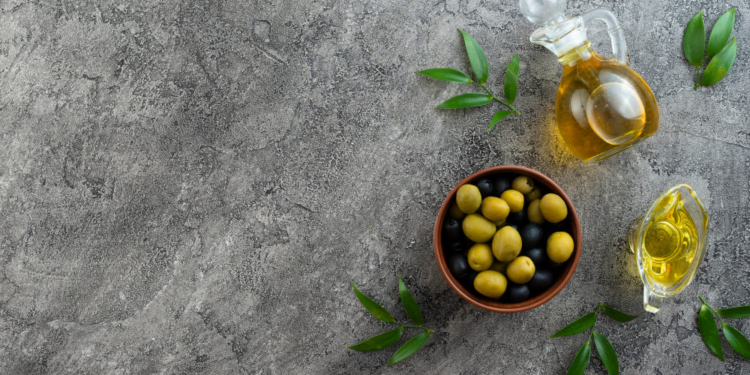Moroccan olive oil is a prized ingredient that has gained popularity worldwide in recent years. With its unique taste and health benefits, Moroccan olive oil has become a staple in many kitchens and a go-to ingredient for those looking for healthy and flavorful cooking options. In this article, we will explore the production, benefits, and uses of Moroccan olive oil.
Introduction
Olive oil has been an integral part of Moroccan cuisine and culture for centuries. Morocco is one of the largest producers of olive oil in the world, with its olive groves covering an area of more than 1.5 million hectares. Moroccan olive oil is known for its rich and distinctive taste, and its nutritional properties make it a healthy alternative to other oils.
Production of Moroccan Olive Oil
Morocco’s climate and soil conditions are ideal for the cultivation of olive trees, which are grown in diverse regions of the country. Moroccan olive oil is produced using traditional methods, and the country is known for its high-quality, extra-virgin olive oil.
Moroccan olive oil is made from several varieties of olives, including Picholine, Haouzia, and Menara. The olives are harvested between October and January, depending on the region, and are then transported to local mills for processing.
The olive oil is extracted through a process called pressing, which involves crushing the olives to release their oil. The oil is then separated from the pulp and water using a centrifuge, and the resulting product is extra-virgin olive oil.
Health Benefits of Moroccan Olive Oil
Moroccan olive oil is rich in nutrients and has several health benefits. It is a good source of monounsaturated fats, which can help reduce the risk of heart disease and stroke. Moroccan olive oil also contains antioxidants and anti-inflammatory compounds, which can help protect against chronic diseases like cancer and Alzheimer’s disease.
Studies have shown that consuming olive oil can also improve cholesterol levels and lower blood pressure. Additionally, Moroccan olive oil has been found to have beneficial effects on the skin and hair, due to its antioxidant properties.
Culinary Uses of Moroccan Olive Oil
Moroccan olive oil is a key ingredient in many traditional Moroccan dishes, including tagines, couscous, and harira soup. It is also used as a dressing for salads and drizzled over roasted vegetables.
When cooking with Moroccan olive oil, it’s important to choose high-quality, extra-virgin olive oil for the best flavor and health benefits. The oil should be stored in a cool, dark place, away from heat and light, to prevent it from going rancid.
Beauty and Health Uses of Moroccan Olive Oil
Moroccan olive oil is not only beneficial for cooking but also has several health and beauty uses. The oil can be used as a moisturizer for the skin, thanks to its antioxidant properties. It can also be used as a hair conditioner, as it helps nourish and moisturize dry and damaged hair.
Moroccan olive oil can be used in a variety of DIY beauty treatments, such as facial masks and hair masks. To make a DIY hair mask, mix equal parts of Moroccan olive oil and honey and apply it to your hair for 30 minutes before washing it out.
Moroccan Olive Oil in the Global Market
Moroccan olive oil is a significant player in the global olive oil market, with the country exporting large quantities of olive oil to several countries. The demand for Moroccan olive oil has been on the rise due to its unique flavor and health benefits, and the country’s olive oil industry has been expanding rapidly in recent years.
The production of olive oil has a significant impact on the Moroccan economy, and efforts are being made to promote sustainable production practices and protect the environment.
Tips for Buying and Storing Moroccan Olive Oil
When buying Moroccan olive oil, it’s important to look for high-quality, extra-virgin olive oil. Extra-virgin olive oil is made from the first pressing of the olives and is of the highest quality. Look for oil that is labeled as cold-pressed, which means that the oil was extracted without the use of heat, preserving its flavor and nutrients.
It’s also important to store Moroccan olive oil properly to ensure its quality and freshness. Olive oil should be stored in a cool, dark place, away from heat and light. Exposure to heat and light can cause the oil to go rancid, affecting its flavor and nutritional value.
Last but not least
Moroccan olive oil is a delicious and nutritious ingredient that has gained popularity worldwide in recent years. It is a key component of Moroccan cuisine and has several health and beauty benefits. Moroccan olive oil is produced using traditional methods, and the country’s olive oil industry has been expanding rapidly in recent years. Whether you’re using it for cooking, beauty treatments, or simply drizzling it over a salad, Moroccan olive oil is a versatile and healthy ingredient that is sure to become a staple in your kitchen.
FAQs
Moroccan olive oil is made from several varieties of olives, including Picholine, Haouzia, and Menara, which give it a unique flavor and aroma.
Moroccan olive oil should be stored in a cool, dark place, away from heat and light, to ensure its quality and freshness.
Moroccan olive oil is a good source of monounsaturated fats, antioxidants, and anti-inflammatory compounds, which can help reduce the risk of chronic diseases like heart disease, stroke, and cancer.
Moroccan olive oil can be used as a moisturizer for the skin and a conditioner for the hair. It can also be used in DIY beauty treatments like facial masks and hair masks.
Moroccan olive oil can be found in specialty food stores and online retailers. Look for high-quality, extra-virgin olive oil labeled as cold-pressed for the best flavor and nutritional value.


